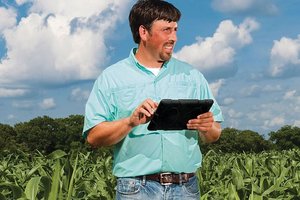According to a recent press release, the USDA has announced the creation of the first ever “Regional Hubs for Risk Adaptation and Mitigation to Climate Change” at seven locations around the country.
Each of these “Climate Hubs” will address increasing risks such as fires, invasive pests, devastating floods, and crippling droughts on a regional basis, aiming to translate science and research into valuable information to farmers, ranchers, and forest landowners. Drought between 2011 and 2013 alone was estimated to cost the U.S. $50 billion, risks that not only impact farmers, but all Americans.
Agriculture Secretary Tom Vilsack, said about the new program in the release, "For generations, America's farmers, ranchers and forest landowners have innovated and adapted to challenges. Today, they face a new and more complex threat in the form of a changing and shifting climate, which impacts both our nation's forests and our farmers' bottom lines. USDA's Climate Hubs are part of our broad commitment to developing the next generation of climate solutions, so that our agricultural leaders have the modern technologies and tools they need to adapt and succeed in the face of a changing climate."
The seven regional locations across the U.S. include:
- Midwest: National Laboratory for Agriculture and the Environment, Agricultural Research Service, Ames, Iowa
- Northeast: Northern Research Station, Forest Service, Durham, N.H.
- Southeast: Southern Research Station, Forest Service, Raleigh, N.C.
- Northern Plains: National Resources Center, Agricultural Research Service, Fort Collins, Colo.
- Southern Plains: Grazinglands Research Lab, Agricultural Research Service, El Reno, Okla.
- Pacific Northwest: Pacific Northwest Research Station, Forest Service, Corvallis, Ore.
- Southwest: Rangeland Management Unit/Jornada Experimental Range, Agricultural Research Service, Las Cruces, N.M.
Each of these locations will serve as a regional hub of information to better prepare agricultural producers, ranchers, and forest landowners for climate change that may impact their livelihoods.
